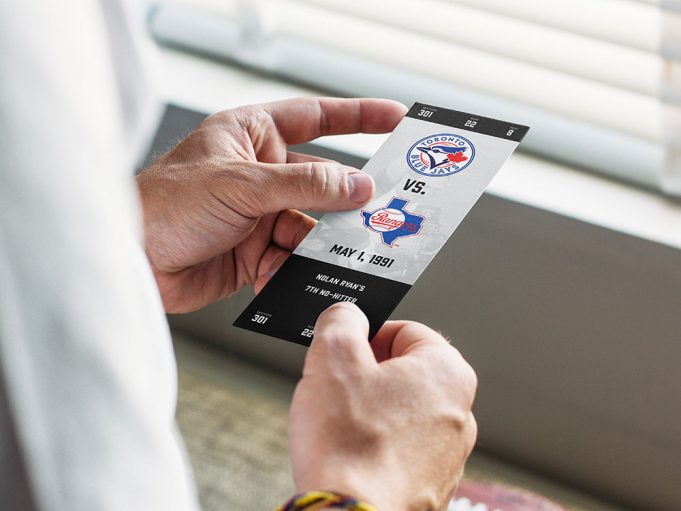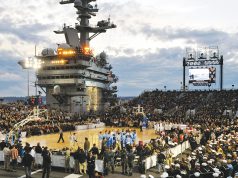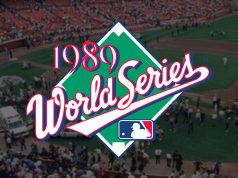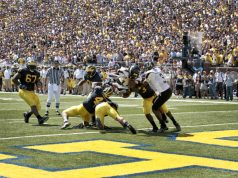Texas Rangers’ pitcher Nolan Ryan felt every one of his 44 years early in the evening of May 1, 1991. Worse, he was about to face the hard-hitting Toronto Blue Jays.
Ryan reportedly approached pitching coach Tom House in the clubhouse to prepare him for the worst.
“My back hurts, my heel hurts and I’ve been pounding Advil all day,” Ryan told him. “I don’t feel good. I feel old today. Watch me.”
House watched, all right, as Ryan pumped 94 and 95 mph fastballs past batters who weren’t even born when he made his major league debut with the New York Mets in 1966. Second baseman Roberto Alomar swung through the last of those deliveries, the finishing flourish to Ryan’s record seventh career no-hitter. Three months past his 44th birthday, the Rangers’ ageless wonder was the oldest pitcher to author such a masterpiece.
“He was just so dominating,” said plate umpire Tim Tschida, who worked 27 MLB seasons (1986-2012). “As it went on, you got the feeling no one was gonna get a solid hit, that if they broke it up it was gonna be on a flare or an off-the-fists kind of thing or a bloop of some sort. His stuff was just electric.”
The Blue Jays entered the game as the majors’ top hitting team with a .276 average. But Ryan, mixing crackling fastballs with dazzling curveballs and changeups, silenced their bats in a 3-0 victory at Arlington Stadium.
“I never had command of all three pitches like I did tonight,” Ryan told reporters. “This was my most overpowering no-hitter.”
Ryan struck out 16 batters in what Walter Shapiro of Time magazine called a “time-warp classic.”
“There was a chance he’d throw a no-hitter every time he went out there. And he had everything working that night. It just seemed like it was meant to be,” said first-base umpire Drew Coble, who worked in the league from 1982-99. He lost his job as part of the Major League Umpires Association mass resignation strategy in 1999. He was later among those MLB was ordered to rehire, but he instead retired as part of a 2002 agreement.
Ryan threw 83 of his 122 pitches for strikes. He allowed only two baserunners, walking third baseman Kelly Gruber in the first inning and left fielder Joe Carter in the seventh. Neither advanced past first. Otherwise, Ryan was perfect.
Ryan, who concluded his Hall of Fame career in 1993 with 324 wins (tied for 14th on the all-time list) and the major league record for strikeouts (5,714), equaled Sandy Koufax’s mark of four no-hitters while with the California Angels in 1975. He threw his fifth as a member of the Houston Astros six years later and supplanted Cy Young as the oldest pitcher to throw a no-hitter in a 5-0 Texas victory at Oakland on June 11, 1990.
John Shulock, who umpired in the majors from 1979-2002, worked second base in that game and for Ryan’s seventh no-hitter.
Ryan preserved his youthful vitality by sticking to a vigorous workout regimen and riding a stationary bike for 30 minutes following every start, without fail — even in the afterglow of his seventh no-hitter.
“He rode that frickin’ exercise bike 10,000 miles a day, I think,” Coble said with a laugh. “He worked to stay physically fit and he had real strong legs. A lot of power pitchers eventually become junk ball pitchers. He stayed a power pitcher all of his years because he had such strong legs.”
As fit as he was, not even Nostradamus could’ve foreseen an epic outing from Ryan against Toronto. Troubled by a backache, he sought relief with a heating pad in the clubhouse before the game. A headache, tender heel and split callus on the middle finger of his pitching hand added to his woes.
Rangers Manager Bobby Valentine took the unusual step of warning the umpires — Tschida, Coble, Shulock and Mark Johnson (1979-99, who also lost his job with the mass resignation), working third base — that he might need to make an early pitching change.
“When we exchanged lineup cards at home plate, Valentine told me he had a guy warming up in the bullpen because Nolan said his back was stiff,” Tschida said. “So they had another guy ready to go in the top of the first inning.”
Ryan hardly oozed confidence as the leadoff hitter, center fielder Devon White, stepped to the plate.
“I didn’t think I’d be out there very long,” Ryan told reporters. “But once the game got started, everything kicked in for me and it just got better and better as the game went on.”
Ryan allowed only the walk to Gruber in the first inning, then found his groove in the second, freezing all three batters with 12-to-6 curveballs.
“As much as people talked about his fastball, his breaking ball was devastating,” Tschida said. “And when he was on with the breaking ball, he was really tough to hit because he didn’t have to throw a fastball for a real good strike. He struck out the side in the second inning on breaking balls — called strikes to all three hitters, and they didn’t even question those pitches.
“They didn’t even look at me. They just turned and walked back to the dugout. After the third out, I could see the infielders from the Rangers running off the field and they were all looking at each other, smiling.”
Even at that early stage they sensed something magical was afoot.
After a 1-2-3 top of the third, Texas scored three, including right fielder Ruben Sierra’s two-run homer off Jimmy Key. That was all the offensive support Ryan needed.
He breezed through the fourth and fifth innings before shortstop Manny Lee threatened to spoil his budding gem in the sixth with an end-of-the-bat blooper to center. But Gary Pettis raced in, reached down and plucked the ball off his shoelaces.
“That was the only time I was worried,” Ryan said after the game. “That ball could have fallen in, but I knew Gary had a good chance because he was playing shallow. It was good to have a Gold Glover there on that play.”
The decibel level, in concert with the tension, increased as the game entered the later innings. The crowd of 33,439 let out a thunderous roar when Ryan struck out catcher Greg Myers to end the eighth, and became louder still after he retired Lee and White on routine grounders to start the ninth.
In a bit of irony, the next batter was Alomar, whom Ryan had known since he was a youngster, back when Ryan and Sandy Alomar — Roberto’s father — were Angels teammates. In fact, Sandy Alomar played second base in Ryan’s first two no-hitters in 1973.
The fans stood, poised to explode. Ryan got two quick strikes, then took a deep breath before rearing back and blowing a 93 mph fastball past Alomar to wrap up the most improbable of his seven no-hitters. Teammates mobbed Ryan, hoisted him onto their shoulders and carried the hero off the diamond.
“I didn’t stick around, but I did walk off slowly, wanted to kind of savor the moment,” Tschida said. “Because the chances of working a no-hitter behind the plate — I mean, if you get one you’re lucky.”
This one was extraordinary on many levels. What made it more special for the umpires was Ryan’s classy gesture: He gave each crewmember three autographed baseballs, mementos of an unforgettable evening.
Three hours before, when his back ached and head throbbed, Ryan seemed an unlikely candidate to accomplish anything momentous. But on a night when he felt positively awful, Ryan proved awfully dominant.
“Maybe he wasn’t feeling well and maybe he was 44 years old,” Tschida said, “but Nolan Ryan was very much a competitor. He didn’t think anybody could hit him.”
And on the night of May 1, 1991, nobody could.
What's Your Call? Leave a Comment:
Note: This article is archival in nature. Rules, interpretations, mechanics, philosophies and other information may or may not be correct for the current year.
This article is the copyright of ©Referee Enterprises, Inc., and may not be republished in whole or in part online, in print or in any capacity without expressed written permission from Referee. The article is made available for educational use by individuals.



















